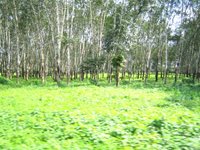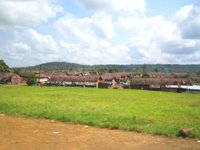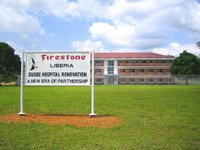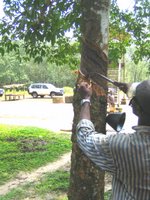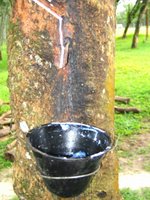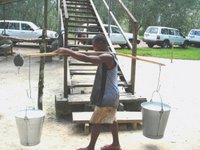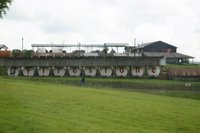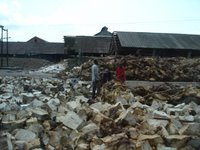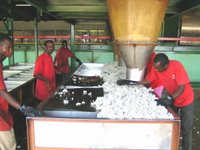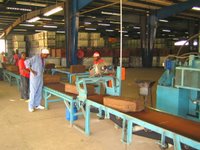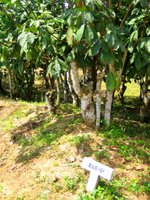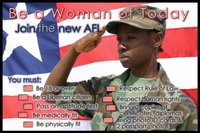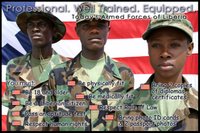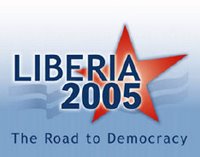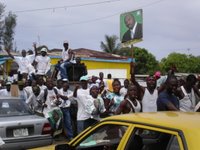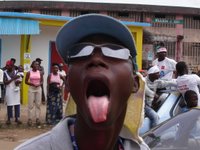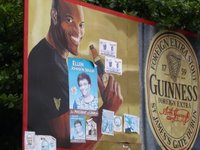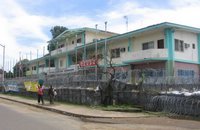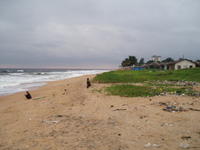“Let Justice Be Done To All Men” ... but only those who can afford to pay for it
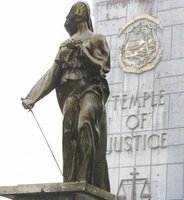
It’s been a while ... Well 7 months actually… I say, my brother, wah hapin? ... sorry-oh! I lost track of time...
A lot has happened since my last entry…
I’ve got a new job working on a legal assistance project - much more exciting than training a new Army For Looting… (yes, that does mean I’ve decided to stay in Liberia for a while longer).
I also witnessed the first row of street lights being flicked on in Monrovia, I managed to get out of Monrovia into the “bush”, and … and ... and ...
I narrowly escaped a holiday at the infamous “South Beach” Monrovia Central Prison…

Incidentally, the last time I visited the prison was about a month go. There was some poor French engineer who’d been locked up for some business deal gone wrong… he had got himself a lawyer, but the guy didn't show up at court ... So the judge ordered the engineer to be locked up in jail to await trial ...
But at least his lawyer had the courtesy to phone the engineer before he got dragged off to South Beach... It turns out his lawyer was also acting for his crooked business partner, so in the name of professional ethics, he couldn't possibly represent both parties ... (Ah, les avocats, c'est vraiment une sale race!)
Luckily the engineer managed to pay his way out: I bumped into him at the Indian restaurant the other day, we had a good laugh at his rough handling by the justice system…
but anyway I digress…
Back to the story...
It all started about two weeks ago. I’d just moved in to my new apartment when I noticed that things were starting to disappear, a bottle of water at first, then food cans, cartons of juice, some CDs, some DVDs that I hadn’t even yet watched ...
It wasn't the red ants or the termites developing a taste for plastic or tin ... It could only mean one of two things – either somebody had tried to burgle my place (then why steal a tin can of crab meat and leave my Ipod?), or the office cleaner was taking cleaning to new extremes…
So I called her in – let’s call her Muna – and asked her about the disappearance. She swore that “God is my witness” and she didn’t know anything about it and that in fact there must be other people in the office who were trying to make her look life a thief… like, whatever! Muna was the only one with a set of my keys and the only one who’d been in my flat without me being there…

So after giving her one last chance to come clean, off we went together to meet that merry bunch of the Liberian National Police at Zone 3 Base… The case was assigned for investigation by the Women and Child Protection Unit. Errr, wait a minute!!! isn’t the role of the WCPU to protect victims of crime who are women and children, not perpetrators…
Without allowing me a minute to ponder this thought further, I was led away to give my statement… Two hours later, we – the accused, the victim and the police - were all off again in my car (the LNP at Zone 3 Base have no vehicle) to visit the scene of the crime.
We return to Zone 3 Base, where the Police come up with their brilliant solution to the theft: I should re-hire Muna and continue to make her work, so she can pay off the value of the missing items… Genius!!! Why didn’t I think of that??!
Rather than be faced with more magical disappearance tricks, I decided to cut my losses short and inform them that I no longer wish to press for Muna’s prosecution. The LNP Detective (looking sad, as he wasn’t going to get a cut) turned to me and said “Well, in that case, bossman, you have to withdraw your complaint”… So, I duly withdrew my complaint after Muna promised me that we’d go our separate ways and this would be the end of the matter…
But this is Liberia and nothing is quite so simple...
Exactly a week later, I received a letter ordering me to appear before the City Solicitor to answer to an unspecified “complaint that is criminal in nature” made against me by... who else, but Muna the psycho-cleaner from hell herself. The back-stabbing witch!!!
So, the next day, I presented myself at the appointed time at the Temple of Justice (Motto: “Let Justice Be Done To All Men”... ).
After the City Solicitor had allowed Muna to tell her side of the story, I was left none the wiser as to the charge of which I was accused… I innocently asked the Solicitor what charge was being made against me. He informed me that I had tarnished the cleaner's reputation in the community by having made a complaint to the police and so thereby had labelled her “a thief and a rogue”... Muna, a thief, never??!
I was quick to point out that libel and slander are civil offences even in Liberia. Taking a moment to find some other offence, the City Solicitor informed me that the complaint was that I had engaged in "criminal coercion"…
Mmm, that’s an offence I’ve never heard of before... The first hit on Google produces this long-winded definition:
“A person is guilty of criminal coercion when, with intent to compel another person to engage in or refrain from conduct, he unlawfully threatens to:
(a) Commit any crime; or (b) Accuse anyone of a crime; or (c) Expose any secret tending to subject any person to hatred, contempt or ridicule or to impair another's credit or business repute; or (d) Take or withhold action as an official or cause an official to take or withhold action.”
Anyway after much “palava” lasting over an hour, I was able to talk my way out of the Temple of Justice and walk out a free man ... only just ... after the City Solicitor forcefully tried to solicit a bribe to ensure that he could "clear his desk" of the complaint... Needless to say, I told him to shove his desk up where the sun don't shine...
Liberia, sweet land of Liberty, where everything – and particularly Justice – is for sale…









